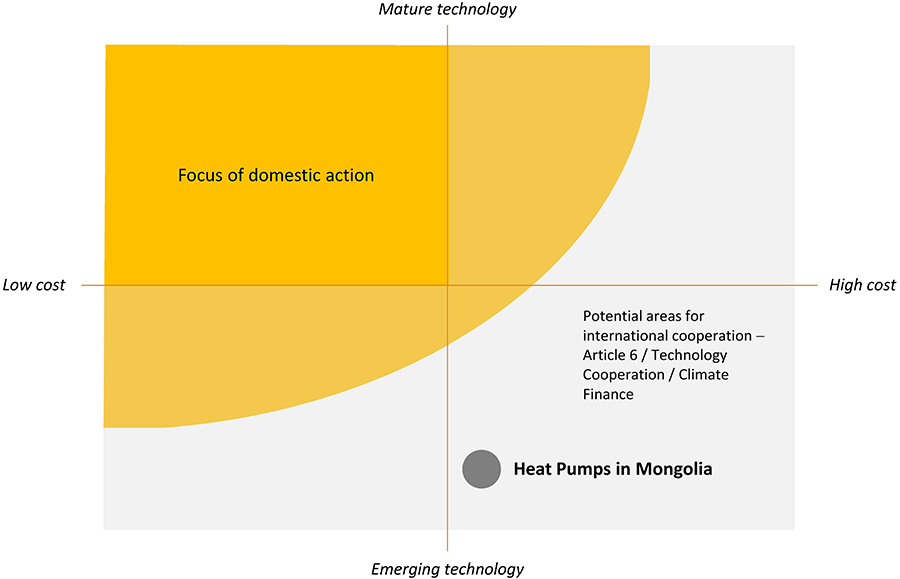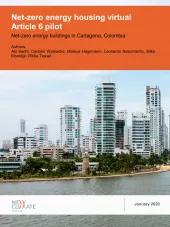Article 6 of the Paris Agreement provides the framework for a new generation of carbon markets in a context where all countries are supposed to formulate and implement ambitious Nationally Determined Contributions towards a temperature target and ratchet their contribution on a regular basis. With the final rules for Article 6 being an issue of ongoing negotiation, virtual pilots can help contribute to the discussion regarding rulemaking for Article 6 and inform new ways to cooperate. NewClimate Institute has identified the installation of ground source heat pumps in Mongolia as a promising emission reduction option for a virtual Article 6 pilot.
Conclusions:
For this virtual Article 6 pilot, we explored the potential for the installation of ground source heat pumps (GSHP) to replace coal-based district heating in apartment buildings in the Mongolian city of Khovd. The successful implementation of the proposed pilot project has the potential to accelerate the retirement of an old heat plant, reduce GHG emissions, familiarise housing construction firms and households with renewable heating technologies, and promote other important sustainable development co-benefits, notably a reduction of air pollution. The proposed project offers a novel alternative to current heating technologies used in Mongolia, since it can be based on clean and Paris-compatible heating supply and has unexplored synergies with efforts to expand the availability of affordable permanent housing to the ger (yurt) populations.
The installation of GSHP as part of an Article 6 pilot would very likely be additional. Even though heat pumps are likely the best performing clean heating alternative in the Mongolian context, they still need to overcome several barriers. Most importantly a lack of familiarity with GSHP technology, a lack of existing on the ground technical expertise to install and maintain heat pumps, as well as significantly higher upfront costs compared to alternative heating technologies. Depending on the cost of capital however, heat pumps are likely to have lower overall total costs over their expected 20-year lifetime. The high upfront costs and low technological maturity as measured by market penetration in Mongolia and neighbouring countries indicate that the implementation of the project would not provide a disincentive for Mongolian domestic climate action and that Mongolia would not endanger its own NDC achievement if it were to approve the project, export mitigation outcomes, and apply a corresponding adjustment.






